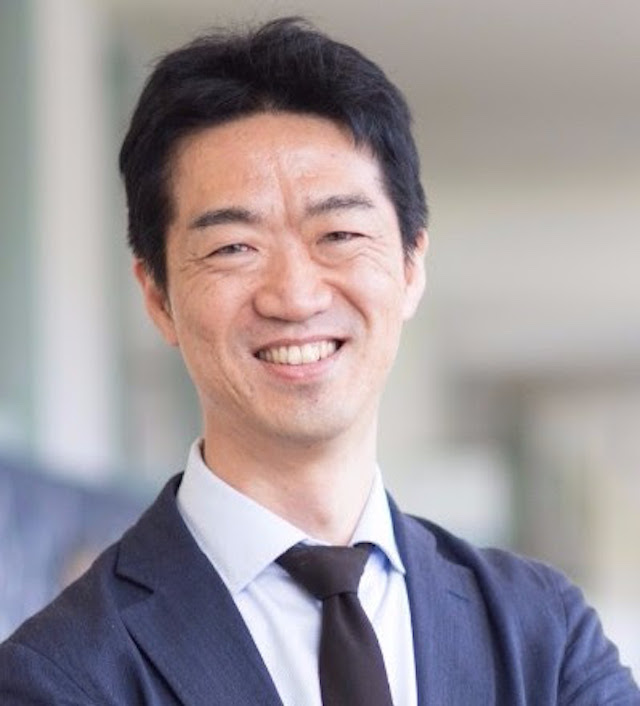Tokyo (SCCIJ) – More than 30 guests and members of the SCCIJ attended the November luncheon about recent changes in the electricity market in Japan. Mr. Seiya Miyake, Chief Operating Officer of the electricity retailer Minna-Denryoku (Everybody Electricity) explained the options and benefits of changing your electricity provider if you are an individual or corporate customer. He also enlightened the audience about the inherent contradictions of the current energy policy of the Japanese government which is mainly based on a comeback of nuclear energy until 2030 and asked companies to advance “green” electricity in Japan by joining the international initiative RE100 which supports the use of renewable energy.
Japan’s electricity market fully liberalized
In April 2016, Japan fully liberalized its electricity market. This means that individual and corporate customers of the ten big utilities which used to have a regional monopoly can now choose their electricity provider freely. Since then, the market has become very dynamic. According to Bloomberg data, the electricity demand from the already more than 400 deregulated retailers has risen by two-thirds.
The largest retailer is Ennet, a joint venture between two natural gas distributors Tokyo Gas and Osaka Gas and NTT Facilities. Tokyo Gas also has become by itself one of the main competitors of Tokyo Denryoku (Tokyo Electric), the company responsible for the Fukushima nuclear accident. Another large retailer in Japan is KDDI. There are also completely new players in this market such as Minna-Denryoku. It calls itself a social energy company because it only sells almost only electricity from renewable energy producers.
Distrust in nuclear power producers in Japan
At the beginning of this luncheon, the speaker revealed that only 5 percent of residential and 12 percent of business customers have changed their electricity provider so far. “These people are mainly motivated by the cost reduction, although the price difference is very small”, Mr. Miyake explained. According to his analysis, a second reason for switching the provider is the distrust of many customers in nuclear power companies. “Those regions which receive the most nuclear-generated electricity have the highest switch rate”, he said.
The speaker who himself had worked as chief nuclear engineer for Kansai Denryoku (Kansai Electric) recounted how he had been shocked by the nuclear meltdowns in Fukushima Daiichi. “The credibility of power companies was completely lost because they had promoted nuclear reactors as safe”, he said. He called the feed-in tariff law enacted by the government of Prime Minister Naoto Kan in 2012 a “strong and meaningful decision”. At the same time, according to a survey he took when working for KPMG, only about 3 to 4 percent of Japanese are highly concerned and act by choosing their own power source.

Mr. Seiya Miyake, Chief Operating Officer of the electricity retailer Minna-Denryoku (Everybody Electricity), was the SCCIJ November luncheon speaker
Switzerland and Japan on different nuclear paths
Then, Mr. Miyake compared the Swiss and Japanese policies regarding nuclear energy. The Swiss recently voted in a referendum to withdraw from nuclear energy until 2050. Also, no new nuclear power plants would be constructed. “I think this kind of referendum is hardly imaginable in Japan”, the speaker said. In fact, the Japanese government has implemented a 2030 energy strategy plan with a 22 percent share of nuclear produced electricity. “But nothing seems to be strategic about this plan because its looks as if they are just trying to restore the same nuclear share as before the disaster,” Mr. Miyake commented.
The speaker criticized the high safety costs of nuclear energy and mentioned the 24-meter-high tsunami wall at Hamaoka nuclear power station as an example. “Certainly, this may prevent a tsunami, but can they respond to all other risks?”, he asked. Also, the government had calculated electricity costs with a bias to make nuclear power look cheaper. Finally, many nuclear power plants in Japan would run out of storage space for spent fuel within the next years and be forced to stop their operation. “There is no candidate site for final disposal of nuclear waste and the reprocessing plant in Rokkasho is not working either”, he added.
Advantages of renewable power sources
At the same time, solar and wind power generation would not require fuel. “In other words, developing renewable energy is the same as developing domestic energy resources”, he claimed. Also, anyone could become a producer of renewable energy. “Thus, it distributes wealth to citizens, regions and corporations”, he said. Finally, one can save money because the cost of renewable energy has fallen dramatically.
On a global level, solar and wind power are now cheaper than electricity from coal-fired plants. He told his audience about the international initiative RE100 where participating companies would pledge to work on converting fully to renewable energy. Among them are famous giants such as Apple, Google and Amazon. Currently, nine out of 114 participating companies are from Switzerland, but only two from Japan. “But I anticipate that the number of such companies will explode in Japan soon in the future,” he said.
Gaining customer empathy for renewables use
As positive examples in Japan, the speaker cited the 200 companies which currently use electricity of Minna-Denryoku. Among them are the school Jiyuunomori Gakuen, the paper recycling company Sanyo Paper and the pharmacy Yakujyu. “They selected our supply even though there was a cheaper counterproposal from the local utility”, he told the audience. One reason is that they hope to gain empathy from customers and business partners. For example, Sanyo Paper is supplied with electricity from a hydropower plant owned by Nagano Prefecture.
The problem for electricity retailers is that in Japan it is illegal to tell about the origin of the offered electricity. “Names such as ‘green’ or ‘renewable’ electricity are prohibited which is quite unique,” Mr. Miyake explained. The thinking behind this rule is that the difference between the feed-in-tariff for renewable electricity and the wholesale market price is paid by everybody. Thus, retailers of green electricity would benefit from a subsidy paid by all customers. As a result of the rule, most retailers have given up marketing such electricity.
Unique approach to sell renewable electricity
But Minna-Denryoku has come with its own unique approach for selling renewable electricity. “Our service called ENECT or Energy Connect enables users to see who is the producer of their electricity and users can even support individual producers which they like, similar to vegetables which are sold with the producer’s name”, he explained.
There is a technical challenge, though, because all electricity is transmitted through the same network. Thus, Minna-Denryoku makes sure that the amount produced by your chosen supplier is matched with the amount of electricity its customers use with the help of blockchain technology. “Imagine that your supplier sends his electricity into a pool and you are supplied from the pool,” he argued. This would be similar to money transfer where the recipient would also not receive the same bank notes as the depositor.
The speaker concluded the talk with a reference to RE100. Because the Japanese government gives priority to the preservation of nuclear power, the pace of deregulation of the electric power industry and conversion to renewable energy is slower than in other countries. Thus, it will not be easy to achieve the goal of RE100 in Japan. “But if major companies make the shift to renewable energy, it will lead to the selection of renewable energy by the whole society,” he said hopefully. “So why not take a step towards RE100?”, he asked his audience. Minna-Denryoku would back such companies strongly, he promised.
Biography of the speaker
Mr. Seiya Miyake is the COO of Minna-Denryoku Inc. Before joining Minna-Denryoku, he gained a lot of experience in management consulting for many energy companies and the government agency at KPMG, and at Arthur D. Little Japan for 8 years. He has also worked for 13 years as a nuclear power plant engineer at Kansai Electric Power Company. Mr. Miyake has contributed with a series of articles to many specialized magazines like “Nikkei Energy Next”, “Smart Grid”, “Energy Forum” and so on. He has obtained a Master Degree from Nagoya University in electrical engineering and an MBA from Kobe University.
Text: Martin Fritz for SCCIJ; Photos: Minna-Denryoku





























